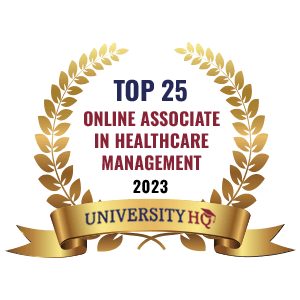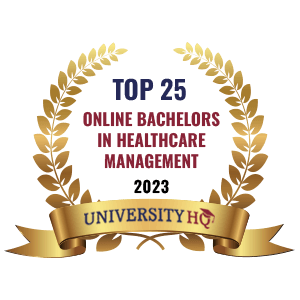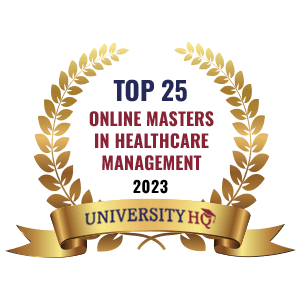What is Healthcare Management?
A healthcare manager is a vital position in the healthcare industry, responsible for overseeing the operations and administration of healthcare facilities such as hospitals, clinics, nursing homes, and private practices. They play a crucial role in ensuring the delivery of high-quality patient care while also managing the business aspects of the facility.
The main responsibilities of a healthcare manager revolve around planning, organizing, coordinating, and supervising the various functions within a healthcare organization. They work closely with medical professionals, administrative staff, and other stakeholders to ensure the smooth day-to-day functioning of the facility. Healthcare managers' primary responsibility is to develop and implement strategic plans to reach the organization's goals and objectives. They analyze data, assess financial viability of new programs, and make informed decisions that optimize efficiency and effectiveness within the facility.
Healthcare managers also play a critical role in overseeing human resources at their organization. They must recruit, hire, and train staff members with the appropriate qualifications to provide quality care, as well as overseeing employee performance through evaluations conducted periodically and addressing any potential disciplinary or performance-related issues that may arise.
Financial management is also an integral component of healthcare manager duties. They must develop and administer budgets, track expenses, and allocate financial resources accordingly. Furthermore, they collaborate with insurance providers, negotiate contracts, manage billing procedures and reimbursement procedures, collaborate on contract negotiations where applicable, and oversee billing/reimbursement processes to keep costs under control.
Healthcare managers must ensure compliance with healthcare regulations and standards, which includes keeping abreast of new legislation or guidelines, implementing policies and procedures as needed, and overseeing whether their facility adheres to legal or ethical requirements.

Featured Online Programs
Online Healthcare Management Education in New York
Healthcare management involves planning, coordinating, and overseeing the delivery of healthcare services. Professionals in this field may work in hospitals, clinics, long-term care facilities, government agencies, or insurance companies. They are responsible for managing budgets, implementing policies, ensuring regulatory compliance, and leading teams of healthcare professionals.
New York is home to some of the finest healthcare institutions worldwide, such as New York-Presbyterian Hospital, Mount Sinai Health System, and NYU Langone Health. New York's healthcare system encompasses numerous services - hospitals, community clinics, mental health facilities, and research institutions are just a few examples - providing quality healthcare across New York state.
Healthcare management positions in New York can vary based on the size and type of healthcare organization. Common job titles in this field include healthcare administrator, healthcare executive, practice manager, and director of operations. These roles require a combination of business acumen, leadership skills, and a deep understanding of healthcare operations.
The demand for healthcare management professionals in New York is strong and continues to grow. According to the US Bureau of Labor Statistics (BLS), there were approximately 37,880 medical and health services managers employed in New York as of May 2020. This accounts for 4.23% of all medical and health services managers employed nationwide.
The employment of healthcare managers in New York is distributed across various healthcare settings. The majority (28.5%) work in general medical and surgical hospitals, followed by outpatient care centers (9.6%), nursing care facilities (8.9%), and physicians' offices (7.6%). Other employment opportunities can be found in home healthcare services, government agencies, and consulting firms. New York offers competitive wages to medical and health services managers, reflecting its higher cost of living. As of May 2020, healthcare management professionals earned an annual mean salary of approximately $131,980; considerably higher than the national average of around $118,800.
Students interested in completing a healthcare administration program will have plenty of options for graduate students and undergraduate programs in New York. There are a huge variety of higher education options throughout the state including Cornell University, CUNY Zicklin School of Business, Albany Medical Center, New York City University, Columbia University, New York University, and more both within the New York City metropolitan area and around the rest of the state.
Online Associates (AS)

An associate degree in healthcare management can open up a world of possibilities for aspiring professionals in the healthcare industry. While many people may think that a bachelor's or master's degree is necessary to excel in this field, an associate degree can provide a solid foundation and set you on the path to success. Not only does it save time and money compared to longer degree programs, but it also allows individuals to gain practical knowledge and skills without having to commit to several years of study.
One of the unique advantages of pursuing an associate degree in healthcare management is the opportunity for hands-on learning experiences. Many colleges and universities offering this program collaborate with local hospitals, clinics, or other healthcare organizations to provide students with internships or cooperative education opportunities. Through these real-world experiences, students can apply their classroom knowledge in a practical setting, gain valuable insights into the daily operations of healthcare facilities, and develop essential skills such as leadership, problem-solving, and communication.
Moreover, an associate degree equips graduates with a well-rounded understanding of both administrative and clinical aspects of healthcare management. In addition to learning about important topics like human resources management, ethics in healthcare, marketing strategies for medical practices, and financial analysis for health services organizations - students will receive comprehensive training on fundamental medical terminology and procedures. This holistic approach ensures that graduates possess a broad skill set that enables them to effectively navigate the complex landscape of modern healthcare while making informed decisions that drive organizational success.
Online Bachelors (BS)

A bachelor's degree in healthcare management provides students with the necessary skills and knowledge to thrive in the ever-evolving healthcare industry. These programs offer a unique blend of business principles and healthcare-specific coursework, enabling graduates to effectively manage healthcare facilities, navigate complex regulations, and ensure quality patient care.
One of the key advantages of pursuing a bachelor's in healthcare management is the wide range of career opportunities available. Graduates can choose from various paths such as hospital administration, health insurance management, pharmaceutical project management, and public health consulting. This diverse array of options allows individuals to find their true passion within the healthcare field while utilizing their business acumen.
Furthermore, earning a bachelor's in this field equips students with transferable skills that are highly valued in many industries beyond healthcare. These skills include critical thinking, problem-solving, communication, leadership abilities, operations management, and data analysis. By honing these abilities throughout their studies, graduates become well-rounded professionals who can adapt to new challenges and drive innovation in any organization they join.
These degrees can not only prepare individuals for successful careers within the healthcare sector but also open doors to numerous other industries. With its multidisciplinary approach and focus on both business principles and specialized healthcare knowledge, this program empowers students to make meaningful contributions towards improving patient outcomes while satisfying their personal career aspirations.
Find Your Online Healthcare Management Program
Online Masters (MS)

A master's degree in healthcare management is becoming increasingly essential in today's complex healthcare industry. With rapidly changing government regulations, technological advancements, and shifting demographics, healthcare managers need a deep understanding of business principles and specialized knowledge to navigate the challenges ahead. These degrees prepare students for leadership positions in hospitals, health insurance companies, pharmaceutical firms, consulting firms, and other healthcare organizations.
One of the unique aspects of pursuing a master's in healthcare management is the opportunity for interdisciplinary learning. Students are exposed to various fields such as healthcare administration, economics, finance, policy analysis, and information technology. This broad-based education equips graduates with a comprehensive skill set that allows them to think critically and make informed decisions across different areas of the industry. Moreover, they learn how to leverage data analytics and new technologies to improve patient outcomes while managing costs effectively.
Besides gaining theoretical knowledge, students pursuing a master's degree in this field nearly always participate in practical experiences such as internships or capstone projects. These opportunities provide valuable hands-on experience working alongside professionals in real-world situations. Through these experiences, students gain insights into real challenges faced by healthcare administrators and develop problem-solving skills that will be invaluable throughout their careers. Ultimately, earning a master's degree gives graduates a competitive edge over others vying for top managerial positions in this dynamic field. Students earning an MBA in healthcare administration degree programs will spend a year learning about business fundamentals and then focus on healthcare administration for the rest of the degree.
Online Doctorate (PhD)
Earning a PhD in healthcare management can open a world of opportunities for professionals looking to make their mark in the dynamic and rapidly evolving field of healthcare. These advanced degrees equip graduates with the skills and knowledge necessary to navigate the complex healthcare landscape, lead organizations, conduct research, and drive innovation.
One key advantage of pursuing a PhD in this field is the potential for increased earning potential and career growth. As the demand for highly skilled leaders in healthcare continues to rise, individuals with a doctorate in this field are well-positioned to secure executive-level positions that offer higher salaries and greater decision-making authority.
Additionally, a PhD program allows students to delve deep into areas such as health policy and economics, organizational behavior, quality improvement, information technology management, and healthcare marketing. By specializing in these specific areas during their doctoral studies, graduates gain a competitive edge when it comes to securing top-tier positions within hospitals, consulting firms, pharmaceutical companies, or government agencies.
In conclusion, pursuing a PhD in healthcare management is an excellent choice for individuals seeking rewarding careers at the intersection of business and healthcare. The rigorous academic training provided by these programs prepares students not only for leadership roles, but also foster critical thinking skills that contribute toward shaping policies and practices aimed at improving patient outcomes. If you are passionate about making positive changes within the healthcare industry while also enjoying personal growth and professional success, then embarking on this academic journey may be just what you need.
Online Certifications
Healthcare management certifications have become increasingly valuable in the current healthcare landscape. With constant changes and advancements in the industry, professionals need to stay updated and equipped with the latest knowledge and skills. These certifications not only enhance their credibility but also provide them with a competitive edge among their peers.
One of the most sought-after healthcare management certifications is the Certified Healthcare Manager (CHM) offered by healthcare industry associations such as the American College of Healthcare Executives (ACHE). This certification ensures that individuals have demonstrated proficiency in various areas, including organizational leadership, finance management, strategic planning, and risk management. It showcases an individual's commitment to professional growth and development while validating their expertise as a healthcare manager.
Another notable certification is the Certified Professional in Healthcare Quality (CPHQ), which focuses on quality improvement and patient safety within healthcare organizations. Ideal for those interested in performance improvement roles, this certification emphasizes core competencies like data management and analysis, process improvement methods, risk assessment techniques, and regulatory compliance. CPHQ holders are well-prepared to tackle challenges related to improving clinical outcomes, patient experience, and overall operational efficiency.
These certifications serve as important milestones for professionals looking to advance their careers or transition into healthcare management roles. They validate their knowledge base while illustrating dedication towards continuous improvement—a trait highly desired by employers in today's ever-evolving healthcare field.
Become a Healthcare Manager in New York
New York is known for its world-class healthcare system, making it an attractive destination for individuals looking to pursue a career in healthcare management. If you have a passion for healthcare and possess strong leadership skills, becoming a healthcare manager in New York can be a fulfilling and rewarding career choice. Here are the essential steps to help you embark on this career path.
-
Step 1: Obtain a Bachelor's Degree
The first step toward becoming a healthcare manager is to earn a bachelor's degree in healthcare administration, business administration, or a related field. Many universities in New York offer specialized healthcare management programs that provide a comprehensive understanding of the healthcare industry and equip students with the necessary skills for managerial roles.
-
Step 2: Gain Relevant Work Experience
While pursuing your degree, it’s crucial to gain practical experience in the healthcare field. Look for internships or entry-level positions in healthcare settings such as hospitals, clinics, or healthcare consulting firms. This experience will provide you with valuable insights into the complexities of healthcare management and allow you to apply theoretical knowledge in a real-world setting.
-
Step 3: Pursue a Master's Degree
Although not always mandatory, obtaining a master's degree in healthcare administration or a related field can significantly enhance your career prospects and open doors to higher-level positions. Many reputable universities in New York offer graduate programs tailored for healthcare management professionals. A master's degree will provide you with advanced knowledge, leadership skills, and a deeper understanding of healthcare policy and regulations.
-
Step 4: Obtain Industry Certifications
To stand out in the competitive healthcare management field, consider obtaining relevant certifications. Certifications such as the Certified Healthcare Manager (CHM) or the Certified Medical Manager (CMM) demonstrate your expertise and commitment to the profession. These certifications can be obtained through professional organizations or associations dedicated to healthcare management.
Find Online Healthcare Management Programs
What Can I Do with a Bachelor's in Healthcare Management?
A bachelor's degree in healthcare management opens up a world of opportunities for graduates. With this degree, you can enter various fields within the healthcare industry and assume roles that are vital to the efficient functioning of healthcare organizations. One option is to pursue a career as a hospital administrator, where your expertise in managing budgets, coordinating services, and ensuring compliance with regulations will be put to use.
Another avenue you can explore with a bachelor's in healthcare management is working as a health services manager. In this role, you would oversee the daily operations of medical clinics or group practices, ensuring that patients receive high-quality care and that administrative processes run smoothly. This position requires strong leadership skills and an ability to navigate complex healthcare systems while balancing the needs of both patients and staff.
If you have a passion for improving patient outcomes on a broader scale, you could consider pursuing a career in public health administration. With this degree specialization, you could work in government agencies or non-profit organizations focused on promoting public health initiatives. Here, your knowledge of healthcare policies and practices will be crucial in developing strategies to address community-wide challenges such as disease prevention and population health management.
In conclusion, obtaining a bachelor's degree in healthcare management offers diverse career options across various sectors within the healthcare industry. From managing hospitals to overseeing operations at medical clinics or contributing to public health initiatives - these roles provide meaningful contributions toward improving patient outcomes and access to quality care while also offering excellent opportunities for advancement.
Potential Careers for Healthcare Management Graduates
- Healthcare Clinic Manager:
Healthcare clinic managers are responsible for overseeing the daily operations of a healthcare clinic, ensuring effective patient care delivery. Their duties may include managing staff, complying with regulatory requirements, and creating policies and procedures designed to maximize clinic performance.
Necessary Requirements:
- Bachelor's degree in healthcare administration or related field
- Proven experience in a healthcare management role
- Strong knowledge of healthcare regulations
Estimated Salary
- The median annual wage for medical and health services managers in the US in 2021 was $101,340
- The mean annual wage for medical and health services managers in New York is $171,620
- Quality and Improvement Manager:
A quality and improvement manager is accountable for overseeing the quality of products or services provided by their company, driving continuous improvement initiatives, developing quality control procedures, monitoring performance metrics, identifying areas for improvement, and creating plans to implement those changes. They must possess excellent analytical abilities, attention to detail, and an in-depth knowledge of quality management principles in this role.
Necessary Requirements:
- Bachelor's degree in a relevant field, such as quality management, engineering, or business administration
Estimated Salary
- The median annual wage for quality control inspectors in the US in 2021 was $38,580
- There is no available median annual wage for quality control inspectors in New York
- Mental Health Facility Administrator:
A mental health facility administrator is responsible for overseeing the day-to-day operations of a mental health facility, ensuring the delivery of high-quality care to patients, and maintaining compliance with all relevant regulations and guidelines. This role requires strong organizational and leadership skills, as well as a deep understanding of mental health services and best practices.
Necessary Requirements:
- Bachelor's degree in healthcare administration or a related field
Estimated Salary
- The median annual wage for medical and health services managers in the US in 2021 was $101,340
- The mean annual wage for medical and health services managers in New York is $171,620
- Development Director:
A development director is accountable for overseeing all aspects of fundraising and donor development activities for an organization. They collaborate closely with their executive team in devising an appropriate fundraising strategy aligned with its mission and goals; furthermore, they must establish relationships with donors, oversee fundraising campaigns/events as needed, meet fundraising targets set, and ensure donors' needs are satisfied.
Necessary Requirements:
- Bachelor's degree in business administration, non-profit management, or a related field (Master's degree preferred)
Estimated Salary
- The median annual wage for training and development managers in the US in 2021 was $120,130
- The mean annual wage for training and development managers in New York is $185,100
- Ambulatory Care Manager:
An ambulatory care manager is responsible for overseeing the coordination and delivery of healthcare services for patients in an ambulatory care setting. They collaborate with healthcare providers, patients, and other stakeholders to ensure high-quality patient care and efficient operations. These managers play a crucial role in managing and improving patient outcomes while maximizing resources.
Necessary Requirements:
- Bachelor's degree in nursing or a related field (Master's degree preferred)
Estimated Salary
- The median annual wage for medical and health services managers in the US in 2021 was $101,340
- The mean annual wage for medical and health services managers in New York is $171,620
- Hospice Administrator:
A hospice administrator is responsible for overseeing the operations and administration of a hospice facility or program. They ensure that the facility or program is providing high-quality care and services to patients and their families, while also adhering to all legal and regulatory requirements.
Necessary Requirements:
- Bachelor's degree in healthcare administration or related field (Master's degree preferred)
- Minimum of 5 years of experience in healthcare administration or management, preferably
Estimated Salary
- The median annual wage for medical and health services managers in the US in 2021 was $101,340
- The mean annual wage for medical and health services managers in New York is $171,620
- Public Health Program Administrator:
Public health program managers are charged with overseeing and managing public health programs to promote community health and well-being. Their duties involve formulating strategies, working closely with stakeholders, ensuring program effectiveness, and complying with regulations.
Necessary Requirements:
- Bachelor's degree in public health or a related field (Master's degree preferred)
- Proven experience in managing public health programs or projects
Estimated Salary
- The median annual wage for medical and health services managers in the US in 2021 was $101,340
- The mean annual wage for medical and health services managers in New York is $171,620
- Postsecondary Professor in Healthcare Management:
Postsecondary professor in healthcare management will be responsible for instructing postsecondary level students in healthcare management at an academic level. They must create engaging courses, ensure students grasp all principles and practices of healthcare administration, and serve as mentors guiding students toward successful careers within this industry. This position requires a commitment to academic excellence, as well as an interest in mentoring young healthcare managers toward successful careers.
Necessary Requirements:
- A doctoral degree in healthcare management or a related field is required
- Previous experience teaching at the postsecondary level is preferred
- In-depth knowledge of healthcare management principles
Estimated Salary
- The mean annual wage for business postsecondary teachers in the US in 2021 was $108,060
- The mean annual wage for business postsecondary teachers in New York is $127,940
Search All Programs
